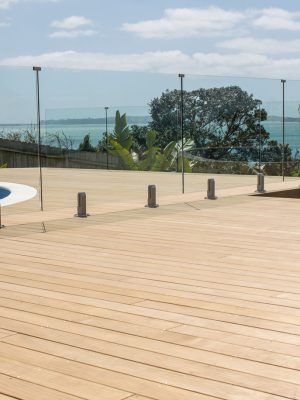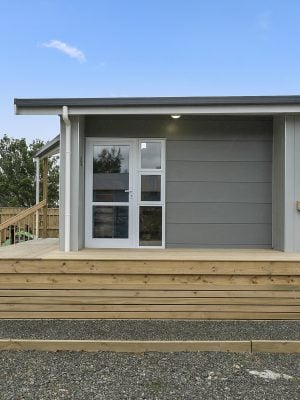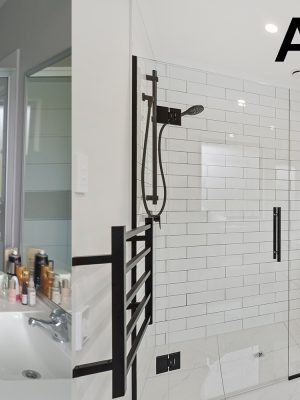Returning to your home after a flood is an overwhelming and traumatic time. For many whose homes are flooded, they’ve never been through this kind of event before and it can be hard to know where to start when one of your biggest investments has been damaged beyond your control.
Firstly, if your home has sustained flood damage, it will need to undergo a Rapid Building Assessment by your local council before you can return. Rapid assessments check your home’s structural integrity to ensure it is safe to enter. If council’s building inspectors give your home a red sticker, it means the building has been seriously damaged or is at risk from further hazards. They’re not a demolition order, but you will need to talk to your building inspector/council and insurer in the first instance to determine the next steps.
If your home is given a yellow sticker, you can have limited entry to your home. The building has been damaged and may need to be vacated in the short term, or occupied by authorised people only, or entry is at people’s own risk. Again, a conversation with the building inspector and your insurer should be your first move. You can see more information about rapid building assessments here.
Once you’ve been given the go ahead to enter your home, take photos and videos of any damage or anything which needs to be replaced for insurance. Photos will help speed up assessments of your claims. If you rent, contact your landlord and your contents insurer.
It is important to clean and dry your house and everything in it. Keep children and animals away from damaged areas until they have been thoroughly cleaned. Any gas or electrical goods, including your gas meter, which have been in contact with flood water will need to be checked by a professional before you can use them again.
Floodwater may contain sewage and other hazardous materials which can contaminate your home, so it’s important to take safety precautions. Wear a fitted P2- or N95-rated mask, goggles, gloves, long pants, a long-sleeved shirt, and gumboots or work shoes. Cover any open cuts, scratches, grazes and wounds with waterproof plasters or dressings.
Mould will develop quickly and cause illness, especially for those with asthma or respiratory illnesses. Follow medical advice and, if you can, hire professionals if there is a lot of mould. And, finally, always wash your hands thoroughly afterwards and before any food prep.
Cleaning up outside
First up, clear your access to the building – the rest of the section can come later. Use a shovel to remove surface contamination, ensuring you clear space in front of any ventilation holes or access underneath of your home. Place any silt or sludge at the edge of your section, ensuring it doesn’t block drains or the road gutter. Hard surfaces, such as driveways, can be cleaned and disinfected with 1 litre of household chlorine bleach in 10 litres of cold water (a household bucket). Leave the disinfectant on for 30 minutes, then rinse with clean water.
The best way to make your outside area safer is to let it dry naturally. Leave garden surfaces and lawns exposed to the air and sunshine to dry out. Make drainage holes with a fork to aerate.
If your garden is heavily contaminated with sewage, use store-bought garden lime to disinfect the area, following the instructions on the label. Do not eat any produce which may have been in contact with flood water or grown in soil which has been in contact with flood water. Instead, clean up and remove debris and sprinkle gardens with lime to disinfect.
Cleaning up inside
If you have insurance, contact your insurer to lodge a claim and understand how they can help. They may undertake some of these steps for you as part of your claim.
Your aim is to clean up, drain, and dry inside as quickly as possible. Take everything that is wet and can be moved, included floor coverings, outside to dry.
Large items which have been in contact with flood water will need to be disposed of, as well as wooden kitchen items and baby bottle teats and dummies, as there is no safe way to clean them. Foam rubber mattresses or pillows may be able to be washed, disinfected, and dried in the open air. Get rid of contaminated clothing, carpets, upholstered furniture, toys and bedding, unless they can be safely cleaned and disinfected.
Open all doors and windows and use heaters (such as hot air blowers for under-floor spaces). Do not use outdoor gas appliances indoors. If there are signs that the house has moved on its foundations, such as buckled floors, new cracks in walls, or out-of- shape door frames, consult an engineer.
You’ll need to check for trapped water and mud in wall cavities, as well as under shower trays, baths, benches, and bottom shelves. Remove skirting, if necessary, and cut out softened plaster board in damaged areas. Check with an expert such as an insurance assessor or your local NZCB builder.
Replace wall linings and floor coverings only after the building is completely dry and leave redecorating for at least three months after finishing the repairs, to prevent risk of mould, blistering, and peeling.
Do not light fires in brick fireplaces for at least two weeks, and then use only small fires until the firebricks have dried out.
Non-wooden cooking, eating and kitchen utensils that have come into contact with floodwater can be washed in hot soapy water then disinfected. After washing, rinse thoroughly in safe water, then disinfect by immersing for 1 minute in a solution of 500 ml (about 2 cups) of plain, unperfumed, household bleach in 10 litres of water. Rinse again in safe water. Alternatively, you can boil all utensils for 1 minute and let cool.
Floodwater can carry bacteria that can contaminate food, so throw away all food and drinking water that has come in contact with floodwater, including things stored in containers, as the seals may be compromised. Avoid drinking or preparing food with tap water until you are certain it is not contaminated. Follow any boil water notice instructions from your local authorities.
Above all, follow the instructions of your insurer, local council, engineers and building professionals – this may be your first time dealing with flood damage, but it’s unlikely theirs. Our builders understand this is a traumatic time for you and your whānau and are here to help you throughout the process as you rebuild your home and life.
The New Zealand Government has also recently launched the New Zealand Claims Resolution Service, a free service providing residential homeowners with advice, case management support where appropriate, and access to legal, technical and well-being services to help them achieve timely, fair, and enduring resolution of their residential insurance claims resulting from natural disasters. You can see more about NZCRS here.
To find a nearby NZCB builder to help with repairing your flood-damaged home, use the Find A Builder search function on www.nzcb.nz
Content source : Auckland City Council
Image credit : Pixabay paulbr75






